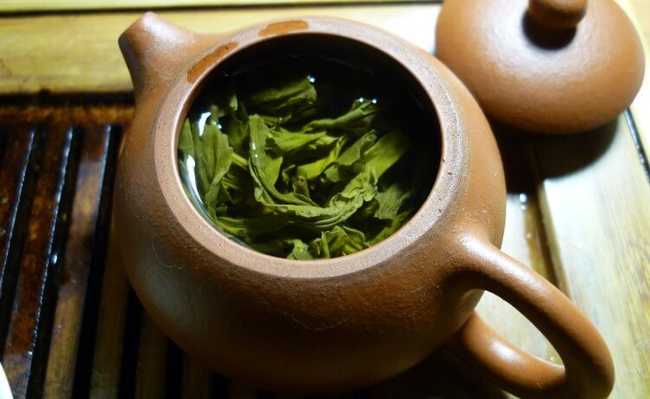Nutmeg: learn about the benefits and care of consumption
Nutmeg helps increase libido, has antibacterial properties and is good for the heart, but consumption requires some care

Edited and resized image by Marco Verch, available on Flicker - CC BY 2.0
Nutmeg is a spice obtained from the seeds of myristica fragrans, an evergreen tropical tree native to Indonesia. It is possible to find whole nutmeg seeds, but its already ground, powdered version is the most common (and cheapest). But its flavor is better enjoyed if it is grated only at the time of consumption.
With a warm and striking flavor, nutmeg is widely used in Indian desserts and dishes, as well as drinks such as mulled wine and chai. It also goes well with vegetable stir fry, purees such as sweet potato and savory milk-based recipes such as stroganoff and white sauce.
While more commonly used for its flavor than its health benefits, nutmeg contains an impressive array of compounds that can help prevent disease and promote your overall health. Its consumption, however, must be moderate, since the high dosage can cause adverse reactions.
Eight Scientifically Proven Benefits of Nutmeg
1. Contains antioxidants
Although small in size, the seeds from which nutmeg is extracted are rich in plant compounds that act as antioxidants in the human body (see study about it: 1). These compounds protect our cells from damage caused by free radicals (2).
When the levels of free radicals in the body become too high, the so-called oxidative stress occurs, a phenomenon associated with the appearance and progression of many chronic conditions, such as certain types of cancer, cardiac and neurodegenerative diseases (3).
The antioxidants present in nutmeg include plant pigments such as cyanidins, essential oils such as phenylpropanoids, terpenes and phenolic compounds, including protocatechuic, ferulic and caffeic acids (1).
An animal study showed that consumption of nutmeg extract prevented cell damage in rats treated with isoproterenol, a drug known to induce severe oxidative stress. Rats that did not receive the extract suffered significant tissue damage and ended up with cell death. On the other hand, the group that received the nutmeg extract did not experience these effects (4).
Test tube studies have also found powerful antioxidant effects of nutmeg extract against free radicals (see related studies: 5, 6, 7, 8).
2. It has anti-inflammatory properties
Chronic inflammation is linked to many adverse health conditions such as heart disease, diabetes and arthritis (9). Nutmeg is rich in anti-inflammatory compounds called monoterpenes, including sabinene, terpineol and pinene. These substances can help reduce inflammation in the body and benefit people with inflammatory conditions (1).
In addition, the wide variety of antioxidants found in the spice, such as cyanidins and phenolic compounds, also have anti-inflammatory properties (see related studies: 1, 10).
One study induced inflammation in rats and treated some of them with nutmeg oil. Rats consuming the oil showed significant reductions in inflammation, pain-related pain, and joint swelling (11).
Nutmeg is believed to reduce inflammation by inhibiting the enzymes that promote it (11 and 12), but further studies are needed to investigate its anti-inflammatory effects in humans.
3. Can increase libido
Some animal studies show that nutmeg can increase sex drive and performance.
In two studies, male rats that received high doses of nutmeg extract (500 mg per kg of body weight) had significant increases in sexual activity and time to sexual performance compared to control groups (see related studies: 13 and 14).
Researchers still don't know exactly how the spice increases libido. Some assume that these effects are due to its ability to stimulate the nervous system, in addition to its high content of plant compounds (13).
In traditional medicine, like the Unani medicine used in South Asia, nutmeg is used to treat sexual disorders. However, research into its effects on sexual health in humans is lacking (14 and 15).
4. It has antibacterial properties
Nutmeg has been shown to have antibacterial effects against potentially harmful bacterial strains such as Streptococcus mutans and Aggregatibacter actinomycetemcomitans, which can cause tooth decay and gum disease.
A test tube study found that nutmeg extract demonstrated powerful antibacterial effects against these and other bacteria, including Porphyromonas gingivalis (16). Nutmeg has also been found to inhibit the growth of harmful strains of the bacteria. E. coli, such as O157, which can cause serious illnesses and even death in humans (1 and 17).
While it is clear that nutmeg has antibacterial properties, further studies in humans are needed to determine whether it can treat bacterial infections or prevent bacterial-related oral health problems in humans.
5-7. It can benefit several health conditions
Although research is limited, studies suggest that nutmeg may have the following effects:
5. Benefit from heart health
Animal studies show that taking nutmeg supplements in high doses reduced risk factors for heart disease, such as high cholesterol and high triglyceride levels, although research in humans is lacking (18).
6. Improve mood
Rodent studies found that nutmeg extract induced significant antidepressant effects in mice and rats. Studies are needed to determine whether the substance has the same effect in humans (see related studies: 19 and 20).
7. Help control blood sugar
A study in rats showed that treatment with high doses of nutmeg extract significantly reduced blood sugar levels and improved pancreatic function (21). However, these effects were only tested in animals that received high doses of the extract. Human studies are still needed to determine whether high-dose nutmeg supplements are safe and effective in humans.
8. It's versatile and delicious
This popular spice has a variety of uses in the kitchen. You can use nutmeg alone or along with other spices such as cardamom, cloves and cinnamon. It has a sweet, warm flavor, which is why it is commonly added to desserts such as pies, cakes, cookies, breads, creams and even fruit salad.
Nutmeg also works well in savory, mild-tasting meat-based dishes like pork chops and lamb curry. It can be sprinkled and blends very well with starchy vegetables such as sweet potatoes and the various types of pumpkin, creating a deep and interesting flavor.
In addition, you can add nutmeg to hot or cold beverages, including hot and cold chocolate, chai, and saffron latte preparations. If you're using whole nutmeg, use a mini-grater, which is ideal for getting small amounts of seasoning - nutmeg is much tastier when freshly grated and goes well with fresh fruit, oats, or yogurt.
Precautions
Although nutmeg is unlikely to cause harm when consumed in small amounts, as in the case of its use as a spice, taking it in high doses can cause adverse side effects.
That's because it contains the compounds myristicin and safrole, which can cause symptoms such as hallucinations and loss of muscle coordination when taken in large amounts. According to a study, mixing nutmeg with hallucinogenic drugs increases the risk of dangerous side effects (22).
In fact, between 2001 and 2011, 32 cases of nutmeg poisoning were reported in the US state of Illinois. 47% of these cases were related to the deliberate ingestion of people who used nutmeg for its psychoactive effects (22).
Myristicin, the main component of the essential oil found in nutmeg, has powerful psychoactive properties and is considered responsible for these toxic effects (23). Cases of nutmeg poisoning have been reported in people who ingested 5 grams of the spice, which corresponds to about 1 to 2 mg per kilogram of body weight (see study about it: 24).
Nutmeg toxicity can cause severe symptoms such as rapid heartbeat, nausea, disorientation, vomiting, and agitation. It can even lead to death when combined with other drugs (see studies about it: 25 and 26).
Furthermore, studies in mice and rats have shown that taking high doses of nutmeg supplements, in the long term, leads to organ damage. However, it is unclear whether humans would also experience these effects (27, 28, and 29).
It is important to note that these toxic effects are linked to the ingestion of large amounts of nutmeg - not the small amounts normally used in cooking (24). To avoid these potentially harmful side effects, avoid consuming too much nutmeg and do not use it as a recreational drug.
Conclusion
Nutmeg is a spice found in many kitchens around the world. Its warm, almond flavor goes well with many foods, making it a popular ingredient in both sweet and savory dishes.
In addition to its many culinary uses, nutmeg contains powerful plant anti-inflammatory compounds that act as antioxidants. This can improve mood, blood sugar control and heart health, although more research is needed on these effects in humans.
Be careful to enjoy this hot spice in small amounts as large doses can cause serious side effects.










